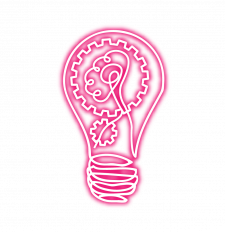Contrary to common belief , the majority of students who are identified as having a learning disability also have a higher IQ.
Learning disabilities are not defined as the intelligence level, but rather, as a “disorder characterized by difficulty with certain skills such as reading or writing in individuals with normal [to high] intelligence,” by MedicineNet.
Performance Discrepancies
Learning disabilities are identified with the use of two tests, an IQ test and an achievement test.
The discrepancy between these scores indicate whether or not a student qualifies as learning disabled. For those with a learning disorder, there is a gap between intellectual ability and performance.
This is why you see many students who are intellectually average or above with a learning disability. Simply, they do not know how to use or apply this intelligence to their weaknesses.
Neuropsychological Assessment
By having a neuropsychological assessment administered, a specialist will be able to identify a student’s areas of weakness and strength.
So, what exactly is a neuropsychological assessment?
This assessment looks at how the brain functions. This type of assessment takes into consideration both cognition, or mental processes, and behavior.
A neuropsychological assessment will be better suited to identify students who have a high IQ but also struggle with certain areas. Specifically, a neuropsychological assessment will look at general intellect, reading comprehension, language, attention, reasoning, and personality.
While schools can conduct a variety of tests, parents may seek testing outside of school since schools do not typically provide comprehensive neuropsychological evaluations.
By having your student participate in a neuropsychological assessment, you will gain a deeper insight into a student’s learning disability.
This assessment will help reveal where in the learning process a student is weak. When the parent, and teacher, have this knowledge, accommodations or more efficient accommodations can be made benefiting the student, allowing to strengthen areas of weakness.
If a parent chooses to have a neuropsychological assessment conducted for their student, this will consist of a few components:
- An interview and observation of the student: this will give the neuropsychologist a fuller picture of the student and how they process information mentally and behaviorally.
- Review of school and medical records: school records will include any behavior issues that have arisen at school. This may also include any observations or notes from the students’ teachers.
- Tests that measure brain function: a variety of tests will measure the before mentioned areas of an assessment.
- A written report, meeting to review the results and receive a list of recommendations.
How an Educational Therapist Can Help
So, you have had your student go through the neuropsychological assessment and you have all the data, but now what do you do with it?
How do you provide the proper help your student needs?
The best place to start is to seek out an educational therapist.
You are probably wondering what an education therapist does. Educational therapy is defined as a clinical practice utilizing specific methods, strategies, tools, and approaches to support academic success in students. These strategies are based upon the individual’s specific learning profile, needs, strengths, and weaknesses.
Educational therapy may sound similar to tutoring, but educational therapy provides more for your student than a tutor. Tutors typically only focus on academics and work with a student on specific subjects.
An educational therapist digs below the surface while also working on developing new skills and strategies helping students learn to manage and compensate for areas of weakness.
In this sense, therapists not only assist with academics but also develop the underlying skills a student needs to be successful independently.
Although in some cases it is not necessary, having a neuropsychological assessment before hiring an educational therapist can provide the best outcome for your student.
The information from the assessment will give the therapist the data needed to create an individualized plan for your student.
An educational therapist can benefit a student in many ways, including:
- Understand how students with learning disabilities learn
One main benefit is an educational therapist helps students and parents discover and understand how they learn, we call this metacognition. Students need to understand how they best learn. After all, they are the ones that have to do their work and complete their courses. Once a student understands how their brain operates, students and the educational therapists work together to develop strategies to set students up for long-term success in school and life.
- Improve executive functions
Executive functions are processes controlled by the frontal lobe in the brain which controls the “managerial” skills to succeed in school. These skills are needed to reach desired goals. Some executive function skills include working organization, planning, working memory, self-control, flexibility, task initiation, time management, attention, and metacognition.
These are all skills students need to reach success in and out of the classroom. As an educational therapist works on areas of weakness, they teach their clients these skills, whether they realize it or not. Many students with learning disabilities have a deficit in one or more of the executive functioning skills. By developing strategies for students, they can learn to be successful despite areas of weakness.
- Build confidence
It is true many students diagnosed with learning disabilities have struggled in school for a long time. Years of being unsuccessful can deplete any confidence a student may have once had. By working with an educational therapist and creating processes to obtain success, students will learn they are capable of doing well and may even enjoy school once the skills are mastered. The feeling of success boosts confidence. Also, when having someone work one on one with a student, there are more opportunities for individualized attention, specific feedback, and praise which undoubtedly is a self-esteem builder.
Things to Consider
A learning disability diagnosis does not mean your student has anything wrong with them or they are below average intelligence.
Learning disabilities can be identified for a variety of reasons and can serve as an indicator that there is a discrepancy between how the student is performing and their intellectual ability.
A neuropsychological assessment can help identify where this discrepancy is happening and an educational therapist can help develop strategies to bridge this performance gap.
EmpowerED is a company offering educational therapy services. We work with students who have diverse academic needs. Check out our site for more information on how EmpowerED can help you.
Stay empowerED,
Nicole






